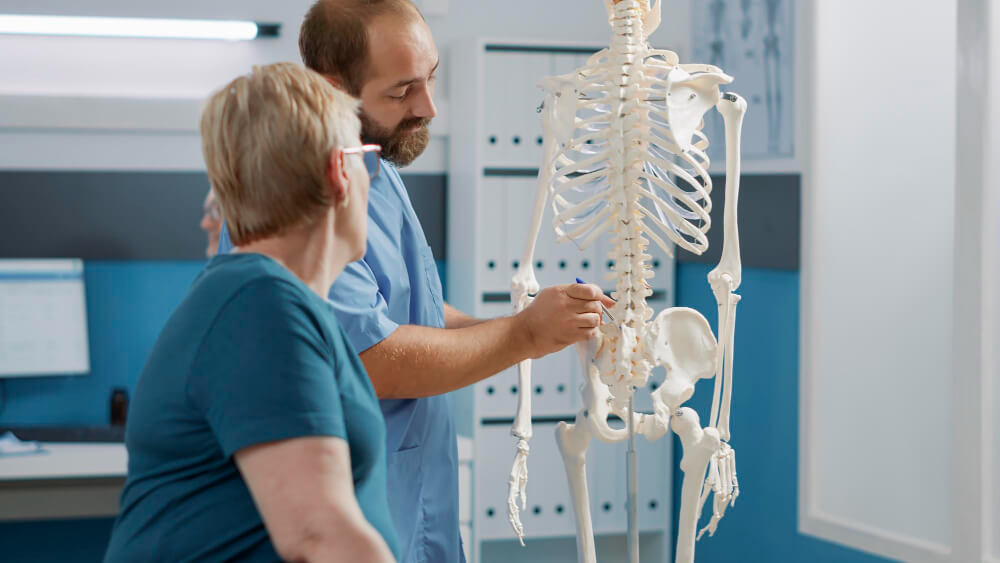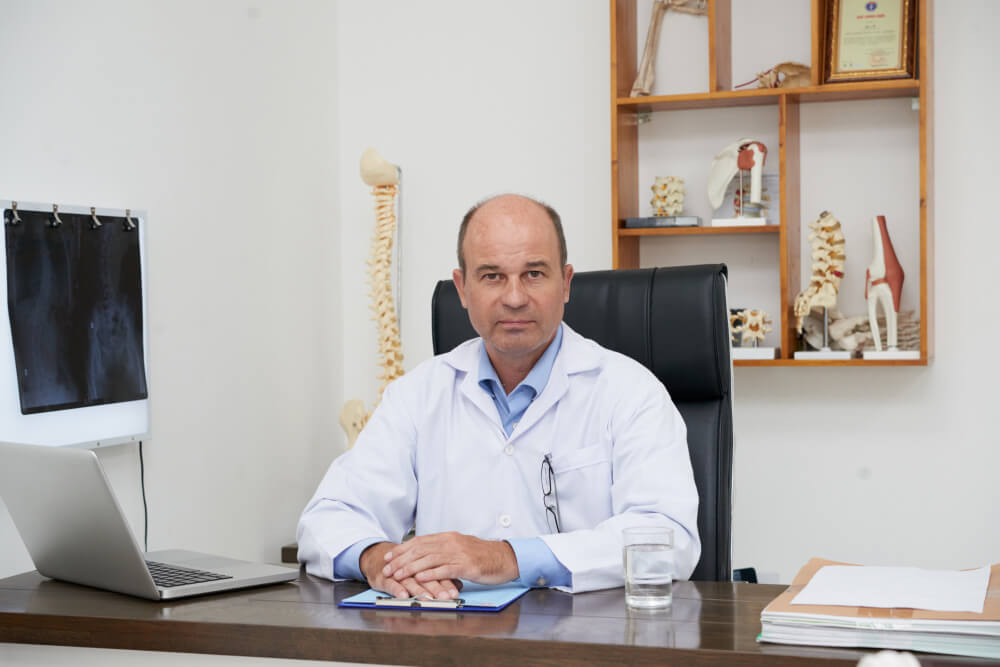Spinal Fusion Surgery for Herniated Discs
Herniated discs, also known as slipped discs or ruptured discs, occur when the soft, gel-like center of a spinal disc bulges or breaks through the outer layer. This can compress nerves, leading to pain, numbness, or weakness. In some cases, spinal fusion surgery may be necessary to treat herniated discs that do not respond to conservative therapies.
Understanding Herniated Discs
Herniated discs can occur in any part of the spine, but they are most common in the lower back (lumbar spine). The condition can be caused by a variety of factors, including:
- Aging The discs in the spine naturally degenerate over time, making them more susceptible to herniation.
- Injury Trauma, such as a car accident or sports injury, can cause herniated discs.
- Repetitive Strain Repeated stress on the spine, such as heavy lifting or poor posture, can contribute to herniated discs.
- Genetics Some people may have a genetic predisposition to herniated discs.
Symptoms of Herniated Discs
Symptoms of herniated discs can vary depending on the location of the herniated disc and the nerves that are affected. Common symptoms include:
- Back Pain Chronic or intermittent pain in the back.
- Sciatica Pain that radiates down the leg, often caused by a herniated disc in the lower back.
- Numbness or Tingling Loss of sensation in the legs or feet.
- Weakness Muscle weakness in the legs or arms.
- Bowel or Bladder Problems In severe cases, herniated discs can affect the nerves that control bowel and bladder function.
Non-Surgical Treatment for Herniated Discs
Many cases of herniated discs can be managed without surgery. Non-surgical treatments may include:
- Rest Avoiding activities that aggravate the pain.
- Medications Over-the-counter pain relievers, prescription pain medications, or muscle relaxants.
- Physical Therapy Exercises to strengthen the back muscles and improve flexibility.
- Corticosteroid Injections Injections of corticosteroids into the affected area to reduce inflammation and pain.
When to Consider Spinal Fusion Surgery
Spinal fusion surgery may be considered if:
- Non-Surgical Treatments Have Failed If conservative treatments have not provided adequate relief.
- Severe Pain Intense pain that significantly interferes with daily activities.
- Neurological Symptoms Progressive numbness, weakness, or loss of bowel or bladder control.
- Spinal Instability If the herniated disc is causing spinal instability.
The Spinal Fusion Procedure
Spinal fusion surgery involves fusing together two or more vertebrae in the spine to create a more stable structure. This can be done through an open surgical approach or using minimally invasive techniques.
- Surgical Approach The approach will depend on the location of the herniated disc and the surgeon’s preference.
- Bone Grafting Bone grafts are often used to promote fusion between the vertebrae.
- Hardware Metal rods, screws, or plates may be used to stabilize the spine.
Recovery After Spinal Fusion Surgery
Recovery from spinal fusion surgery can take several months. Physical therapy plays a crucial role in helping patients regain strength, mobility, and function.
- Rehabilitation Exercises to strengthen muscles, improve flexibility, and reduce pain.
- Gradual Return to Activity Slowly increasing activity levels to prevent reinjury.
- Pain Management Managing pain with medications or other therapies.
Risks and Complications of Spinal Fusion Surgery
As with any surgical procedure, there are risks associated with spinal fusion surgery. These may include:
- Infection Infection at the surgical site.
- Bleeding Excessive bleeding during or after surgery.
- Nerve Damage Damage to nearby nerves.
- Nonunion Failure of the fused vertebrae to heal together.
- Minimizing Risks Following your surgeon’s instructions, attending physical therapy sessions, and maintaining a healthy lifestyle can help reduce the risk of complications.
Choosing a Qualified Orthopedic Surgeon
Selecting an experienced orthopedic surgeon is essential for a successful outcome. Consider the following factors when choosing a surgeon:
- Specialization Look for a surgeon who specializes in spinal surgery.
- Experience Consider the surgeon’s experience and track record of successful outcomes.
- Patient Reviews Read reviews from other patients to get a sense of the surgeon’s quality of care.
- Hospital Affiliation Ensure the surgeon is affiliated with a reputable hospital.
- Insurance Coverage Check if your insurance plan covers spinal fusion surgery.
The Importance of Follow-Up Care
Regular follow-up appointments with your orthopedic surgeon are essential for monitoring your progress and addressing any concerns.
- Post-Operative Check-Ups Regular check-ups to assess healing and monitor for any complications.
- Ongoing Rehabilitation Continuing with physical therapy to maintain strength and function.
- Long-Term Follow-Up Regular check-ups to monitor the longevity of the spinal fusion and address any issues that may arise.
Spinal fusion surgery can be a life-changing procedure for individuals suffering from herniated discs and spinal instability. By seeking expert care from a qualified orthopedic surgeon and following a comprehensive rehabilitation plan, individuals can improve their quality of life and regain mobility.


